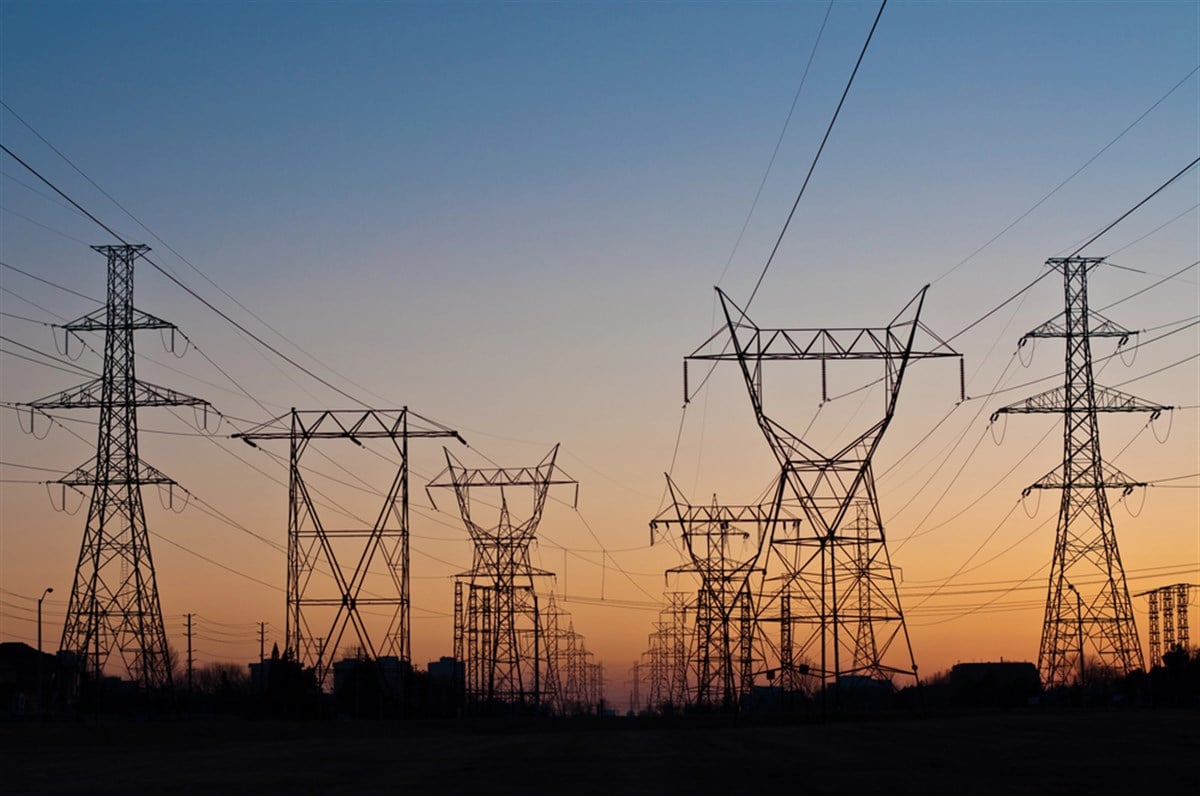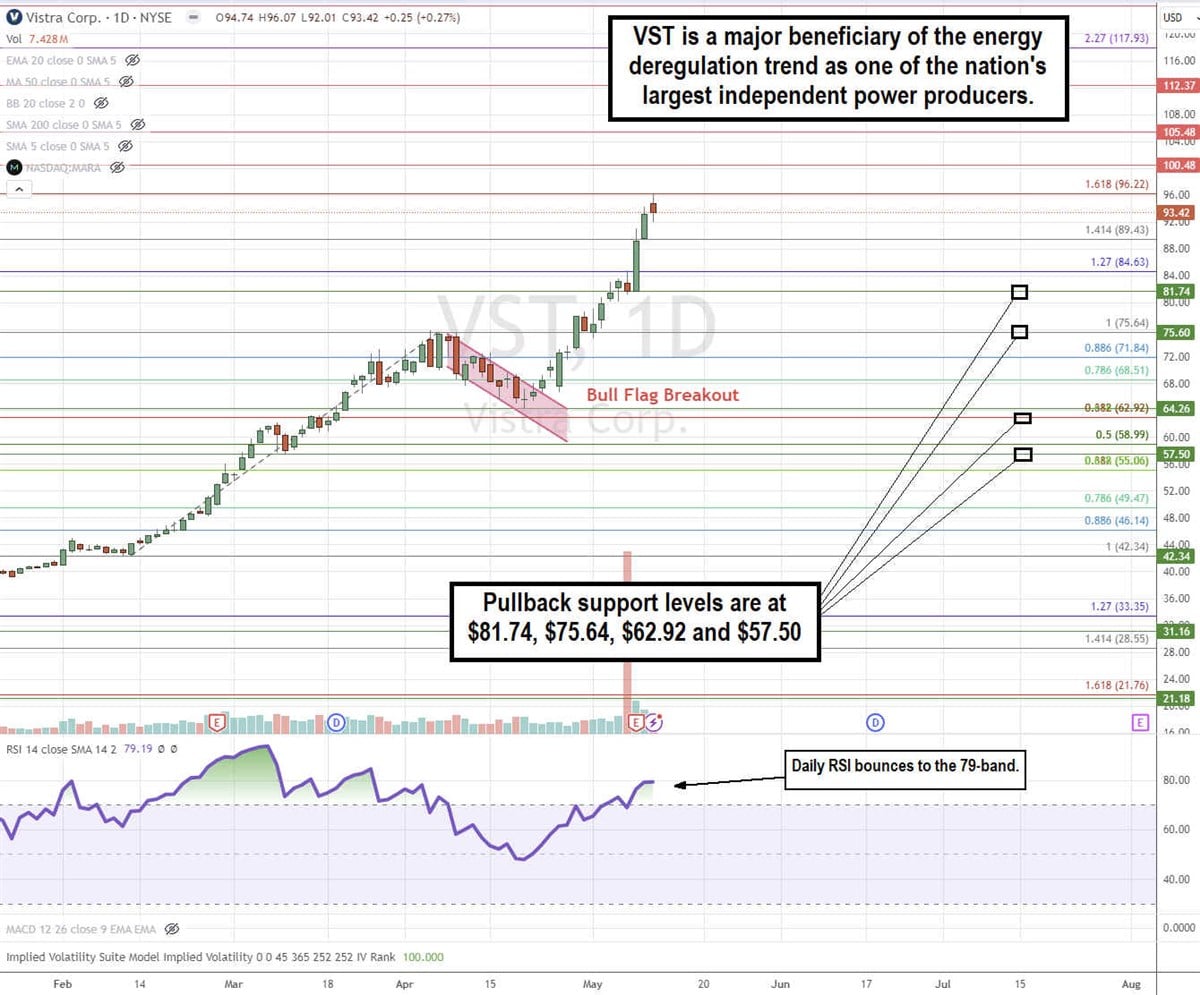 It’s hard to believe that a company in the utilities sector can be trading up 142.5% year-to-date, but it is happening for integrated retail electricity and power generation company Vistra Co. (NYSE: VST).
It’s hard to believe that a company in the utilities sector can be trading up 142.5% year-to-date, but it is happening for integrated retail electricity and power generation company Vistra Co. (NYSE: VST).
After acquiring Dynegy in 2018, Vistra became the largest competitive power generator in the United States. With a capacity of nearly 41,000 MW, the company serves five million customers from California to Maine, generating electricity through coal, natural gas, solar, and nuclear sources.
Vistra competes with other electric utilities, including NRG Energy Inc. (NYSE: NRG), American Electric Power Co. Inc. (NASDAQ: AEP), and NextEra Energy Inc. (NYSE: NEE).
Regulated and Deregulated Energy Markets
The energy market in the United States is divided into regulated and deregulated markets.
In a regulated market, a single power provider has a monopoly in the region. Therefore, the state government sets the prices since consumers don’t have a choice of provider. These electricity companies must appeal to state legislators for rate increases.
Deregulated markets allow for energy provider competition, providing consumers with a choice. The rates are set through the wholesale market and, theoretically, based on supply and demand. While many customers rejoice in the lower electric bill they receive, anomalies like natural disasters can cause wild price swings. There are currently 32 states, including Washington, DC, that have some form of deregulation.
$16,000 Electric Bills
The February 2021 snowstorm Uri caused the power grid to blackout, causing two-thirds of Texas residents to lose power. Consumers who signed up for plans at wholesale rates saw their electricity bills spike over $16,000 as demand soared. Vistra was buying power at $9,000 per kWh, costing the company $1 billion. Many retail electricity companies and cooperatives went bankrupt as the storm caused over $295 billion in damages. Vistra supplies nearly 20% of the electricity in Texas.

Daily Bull Flag Pattern
VST formed a daily bull flag breakout pattern. The flagpole formed on the price ran up from $42.34 to $75.64 on April 5, 2024. A parallel channel comprised of lower highs and lower lows formed the flag as shares pulled back to $64.26 before triggering the bull flag breakout, surging shares to spike up to the 1.618 Fibonacci (fib) extension at $96.22. The daily relative strength index (RSI) is bounced up off the 70-band to the 79-band.
Q1 2024 Results
Vistra reported Q1 2024 net income of $18 million on revenues of $3.05 billion. Adjusted EBITDA of ongoing operations was $813 million. Net income decreased by $680 million from the year-ago period, driven by unrealized mark-to-market gains recognized in 2023. Ongoing operations adjusted EBITDA in Q1 2024 increased by $234 million compared to the year-ago period, driven by the addition of one month of results from the acquisition of Energy Harbor. Vistra executed $3.9 billion of stock buybacks since November 2021, resulting in a 28% reduction in the outstanding shares from November 2, 2021.
Energy Harbor Acquisition Completed
On March 1, 2024, Vistra closed on its acquisition of Energy Harbor, which added over 4,000 MW of nuclear generation and one million customers to its portfolio. This brings Vistra’s nuclear capacity to over 6,400 MW.
Reaffirmed 2024 Guidance Ranges
Vistra expects ongoing operations-adjusted EBITDA between $4.550 billion and $5.050 billion. The company closed Q1 with $3 billion in available liquidity, comprised of $1.07 billion in cash and cash equivalents, $1.29 billion under its credit revolver and $637 million under its commodity-linked revolving credit facility.
Vistra CEO Jim Burke commented, "We believe that our integrated model, which combines best-in-class retail and commercial operations with a high-quality portfolio of generation assets, enables us to provide our retail customers the electric service they need while delivering consistent financial results for our stakeholders.”
Burke concluded, “During another quarter characterized by both winter storms and unseasonably mild weather, Vistra delivered commercial availability of approximately 98% while generating positive profitability and even stronger year-over-year Adj. EBITDA growth, validating the team's approach.”













